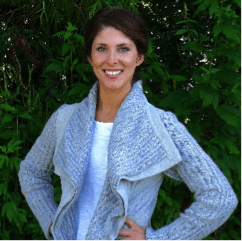Hidden Opportunities and The Power of Vulnerability

There is an excerpt in Alcoholics Anonymous that states, “There is an island of opportunity in the middle of every difficulty.” I have one goal for my clients. The bare minimum would be for them to begin going to the gym. This may seem like an easy feat for most people, but vulnerability is not something that comes easy to people battling an addiction. The choice to attend groups that will challenge addicted individuals physically, mentally, and emotionally sometimes falls flat. This is dependent upon on how willing they are to be vulnerable that day.
As an exercise therapist, I understand that what sometimes seems like the smallest step forward could be the biggest step that they were able to take that day. That is wonderful. Vulnerability Researcher and Therapist Brene Brown, uses former US President Theodore Roosevelt’s quote to explain vulnerability;
“It is not the critic who counts; not the man who points out how the strong man stumbles, or where the doer of deeds could have done them better, the credit belongs to the man who is actually in the arena, whose face is marred by dust and sweat and blood; who strives valiantly…at worst, if he fails, at least he fails while daring greatly.”
Unfortunately for most people suffering from addiction, vulnerability feels like weakness. We must re-write that script to change their mind about what’s weak and what isn’t. I praise all of Victory ARC’s clients who come to the gym each day and are willing to take advantage of the opportunity. Each day they are shown a variety of opportunities in just a 45-minute workout. Once they’ve made the decision to walk in, they are usually surprised by what they find, including serenity, peace, understanding, and patience. Others find an outlet for anger, stress, fear, and resentment. Some receive energy for their day, whereas others may leave their excess energy in the room for the day.
One thing is for certain; they’ve subjected themselves to being vulnerable enough to take direction and suggestions and use them to better themselves while in recovery. For many of the clients, a lack of trust for almost everyone in their lives is common. Putting trust in me as a therapist is a major part of the growth process. Day after day, they trust me in helping avoid injury and accepting help and direction when it is needed the most. Slowly, in doing so, this forms great rapport between client and therapist, which builds a lasting relationship. Ultimately, their script of distrust has been re-written.
Each day has a completely different focus. Some days the focus lies in patience and the ability to be okay with our capabilities and limitations. Some days the focus lies in mindfulness of oneself. Other days the focus is the ability to stay non-judgmental to oneself and others and to refrain from comparing your abilities to those around you. Recovery from addiction is intricately woven into their workouts. The literal actions done in the gym relate to their life in recovery out of the gym. One example is having clients practice their balance on a stability ball. This physical act is challenging for many of my clients for multiple reasons: detoxing, lack of sleep, lack of mental focus or balance, etc.
Regardless, when balance is lost and they fall, what actions do they take next? Can they bravely return to the ball to try again with determination and vulnerability? Or does their mind flood with negative judgments about themselves? Do they tell themselves that they aren’t good at exercise and that they never will be? Do they perceive themselves as weak for trying and failing?
At this moment we discuss the parallel to their recovery. What will they do when all balance is lost in their recovery? If they miss a 12-step meeting, can they still make an effort to attend another one? If they forget to call their sponsor, can they stay in the game and make the call soon? And most importantly, if they relapse mentally or physically, is all previous progress lost? Can they accept their fallible nature as a human, accept that they have the disease of addiction, and continue to strive towards recovery? So often we maintain a self-fulfilling prophecy, becoming what people have told us we are. Others see addiction as a character flaw or weakness. People in recovery often don’t understand that it takes more of an effort to change their perception of themselves than others’ perceptions of them.
Even so, I ask them to give this effort to be vulnerable and dare greatly. I ask them to walk into the gym, or as they see it, the arena, daily. Every day I watch clients seize the opportunity that lies in every tribulation; for starters, the difficulty of just showing up. I also watch them leave their 45-minute workout group looking and feeling lighter. They’re also more peaceful, positive, energetic, and vulnerable. For those clients who have not yet made it into the arena, we maintain our journey to vulnerability by praising them every step of the way. My goal is that someday our exercise group can be seen as a valuable part of their self-care and their support system.
Share This Post:






